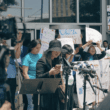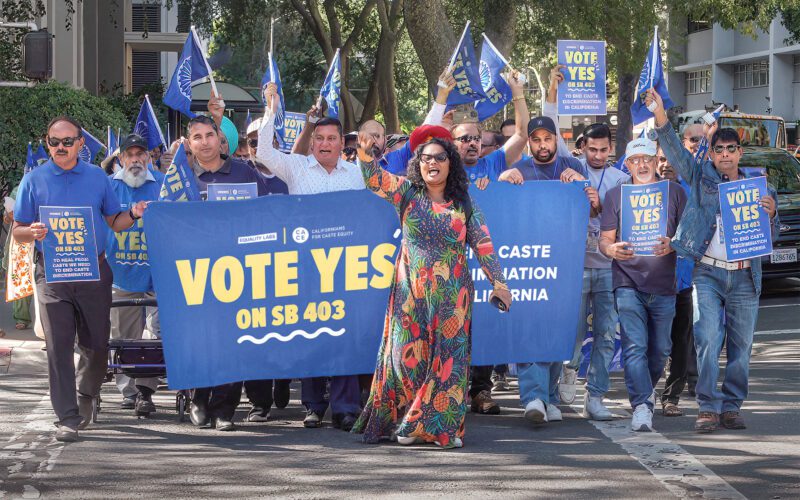Sign up here to receive The Yappie's weekly briefing on Asian American + Pacific Islander politics and support our work by making a donation.
Introduced by California state Sen. Aisha Wahab (D), SB403 aimed to add caste to the state’s definition of “ancestry,” a protected category under civil rights laws. Many Asian American civil rights groups, especially those representing caste-oppressed individuals, had lauded the legislation as an avenue for increasing clarity and accountability around a form of discrimination that often goes invisible in America.
- Gov. Gavin Newsom (D), however, specified in his veto message that California law already protects people from caste-based discrimination.
The state’s Civil Rights Act prevents discrimination based on a range of protected categories, and makes sure that everyone is “entitled to the full and equal accommodations, advantages, facilities, privileges, or services in all business establishments of every kind whatsoever.”
- Other protected categories include sex, race, color, religion, national origin, disability, and primary language, to name a few.
- Though the initial legislation was written to designate caste as a protected status on its own, some Asian American assemblymembers later worked with Wahab to revise the language so that it was designated under ancestry—part of a bid to address concerns around the possibility of racial profiling.
Some South Asian residents and groups saw the bill as a vehicle for unfairly targeting South Asians—especially Hindus. Opponents, including those linked to Hindu nationalists in India, argued that caste discrimination is not as prevalent as people may think it is.
- “This has been months of concern and stress that we’ve been carrying about the impact that this would have on the civil rights of all South Asians regardless of background, and we’re glad the governor saw the problems with it,” Hindu American Foundation Executive Director Suhag Shukla told New York Times’ Amy Qin.
Where things stand: A 2018 Equality Labs report found that 1 in 4 Dalits in the U.S. has faced physical and verbal violence based on their caste.
- The system of social hierarchy is most prevalent in South Asian communities and ranks individuals in four main classes, with Dalits occupying the lowest stratum as “untouchables.”
Seattle was the first city in the U.S. to outlaw caste discrimination earlier this year. The measure enforced protections against caste-related bias in housing, work, and other public spaces. Unlike the California bill, Seattle’s ordinance explicitly names caste as a protected category.
- Proponents of Seattle’s bill had said the city’s preexisting civil rights laws—which bar discrimination “based on characteristics like race, religion, national origin, or ancestry”—weren’t enough to protect lower-caste individuals.
South Asian activists have been organizing in support of the California bill for a year. Many went on a monthlong hunger strike to pressure Newsom to sign the bill while denouncing opponents like the Hindu American Foundation as Hindu nationalists.
- It’s part of a growing push to address caste at the state level as well as in academic institutions.
- “We made history conducting the first statewide advocacy days, caravans, and hunger strike for caste equity,” Equality Labs Executive Director Thenmozhi Soundararajan said in a statement following Newsom’s veto.
- “A testament to our organizing is in Newsom’s veto where he acknowledges that caste is currently covered,” Soundararajan added. “So while we wipe our tears and grieve, know that we are not defeated.”
This story appeared as “The Big Story” in The Yappie’s Oct. 11, 2023 newsletter.
The Yappie is your must-read briefing on AAPI power, politics, and influence, fiscally sponsored by the Asian American Journalists Association. Make a donation, subscribe, and follow us on Twitter (@theyappie). Send tips and feedback to [email protected].









